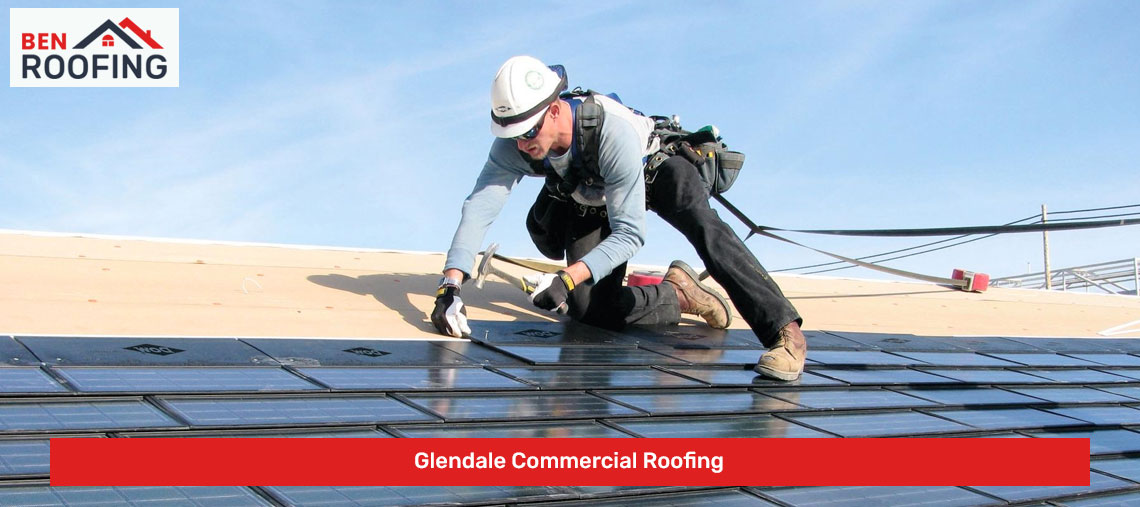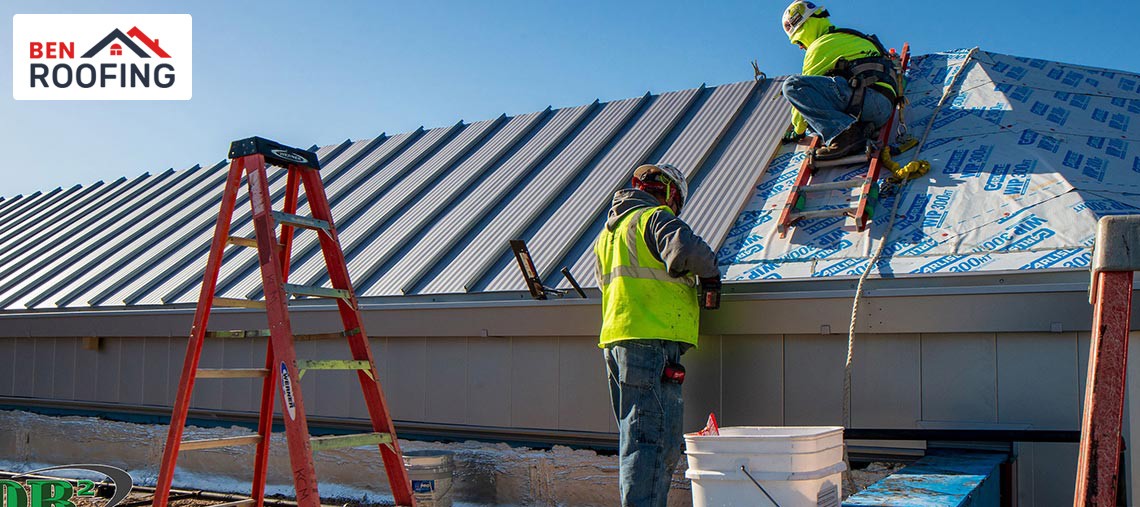Our Glendale commercial roofing services are tailored to address specific areas and needs. Here are some common types of commercial roofing services based on the areas they address:

Here are some of the scenarios where you need to call for a Glendale commercial roofing services

At Ben Roofing, we also offer services for emergency roofing services in Glendale. Here is an outline of some of the services that we offer.
| Service | Description |
| Emergency Roof Repairs | When unexpected roof damage occurs, such as due to severe weather or accidents, emergency roof repair services are needed to address immediate issues. This could involve fixing leaks, securing loose or damaged roofing materials, or stabilizing compromised sections of the roof. |
| Temporary Roof Patching | In urgent situations, temporary roof patching is performed as a temporary solution to prevent further water infiltration or damage. It involves quickly sealing or covering the affected areas until more permanent repairs can be made. |
| Leak Mitigation and Waterproofing | If a commercial roof develops leaks during a rainstorm or due to other reasons, emergency roofing services can provide immediate leak mitigation and waterproofing. This includes identifying the source of the leak, applying temporary or permanent sealants, and implementing measures to prevent further water damage. |
| Storm Damage Restoration | Severe storms, including high winds, hail, or heavy rain, can cause significant damage to commercial roofs. Storm damage restoration services involve assessing the extent of the damage, providing temporary repairs if necessary, and executing comprehensive restoration work to bring the roof back to its pre-storm condition. |
Upgrading the energy efficiency of a commercial roof is an effective way to reduce energy consumption, lower utility costs, and create a more sustainable building. Here are some common Glendale commercial roofing services for improving the energy efficiency of a commercial roof:
Cool Roofing: Installing a cool roof system involves using reflective materials or coatings that reflect a significant amount of solar radiation away from the building. This reduces heat absorption and keeps the roof surface cooler, resulting in reduced cooling requirements and lower energy usage.
Roof Coatings: Applying reflective roof coatings can enhance the solar reflectance and thermal emissivity of the roof surface. These coatings reflect solar heat and release absorbed heat more efficiently, leading to reduced energy consumption for cooling and improved overall energy efficiency.
Daylighting Solutions: Incorporating daylighting systems, such as skylights or solar tubes, allows natural light to penetrate the building, reducing the need for artificial lighting during the day. This decreases energy usage and creates a more pleasant indoor environment.
Energy Monitoring and Control Systems: Installing energy monitoring and control systems enables real-time monitoring of energy usage and facilitates more efficient control of lighting, HVAC systems, and other energy-consuming equipment in response to occupancy patterns and environmental conditions.
The lifespan of a commercial roof depends on various factors, such as the roofing material used, installation quality, maintenance practices, and local climate conditions. On average, commercial roofs can last between 15 and 30 years, but some materials, like metal roofing, can last even longer.
Yes, Glendale has specific building codes, permits, and regulations that apply to commercial roofing. It is important to work with licensed roofing professionals who are familiar with local requirements to ensure compliance.
Yes, regular cleaning and maintenance are important for commercial roofs. Debris, such as leaves, branches, or dirt, should be cleared to prevent clogging of drains and water pooling. Regular inspections, gutter cleaning, and addressing minor issues promptly can help extend the lifespan of the roof and prevent major problems.